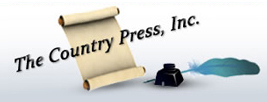In traditional publishing, the publisher handles the marketing, distribution, and warehousing for your book. This is the traditional method to book publishing because there is no expense to the author—mainstream publishers make a profit from the book's sales.
With self-publishing, depending on which type of publisher or platform you choose, the majority of the work falls on your shoulders and you pay for all expenses. The main advantages of self-publishing are that you control when the book is published, you retain all rights to your book, and you receive 100 percent of the profits.
In both cases, you have the option to choose what format your book will be published in—printed book, e-book, audio book, cd, dvd, and many more. If you pick an e-book, which is essentially a book published in digital form and available on e-Readers and other electronic devices, it can be downloaded instantly, has the ability to be translated into different languages, and can never go out of print. However, the e-book formats and file types develop and change over time, many may need to be converted to a new file or format.
For more information on self-publishing and the different ways of publishing your book, contact The Country Press.
Writers Digest Shop





Comments
{tag_commentlist}